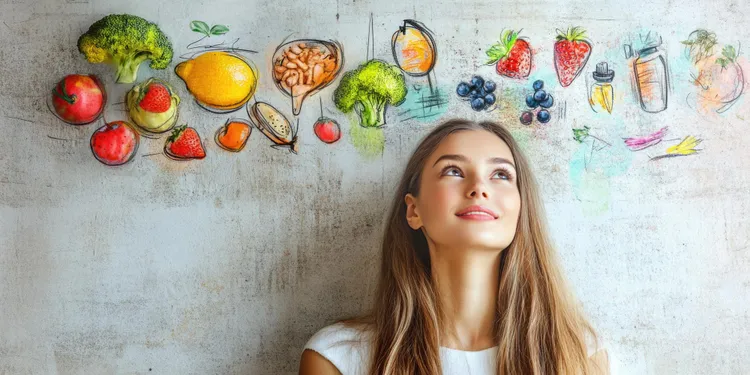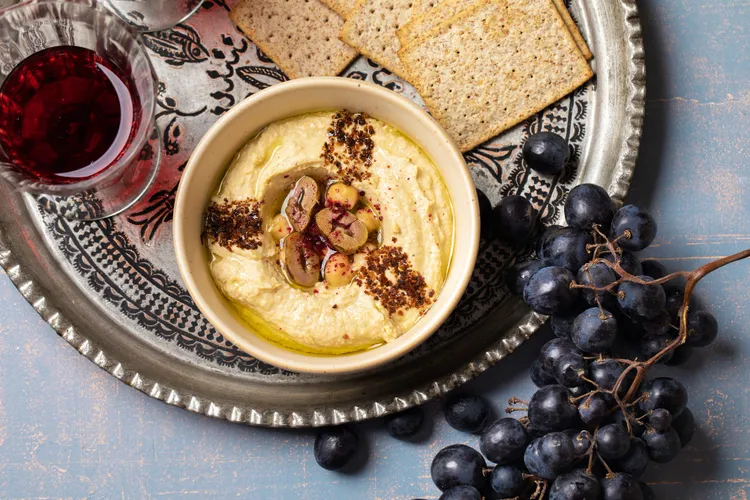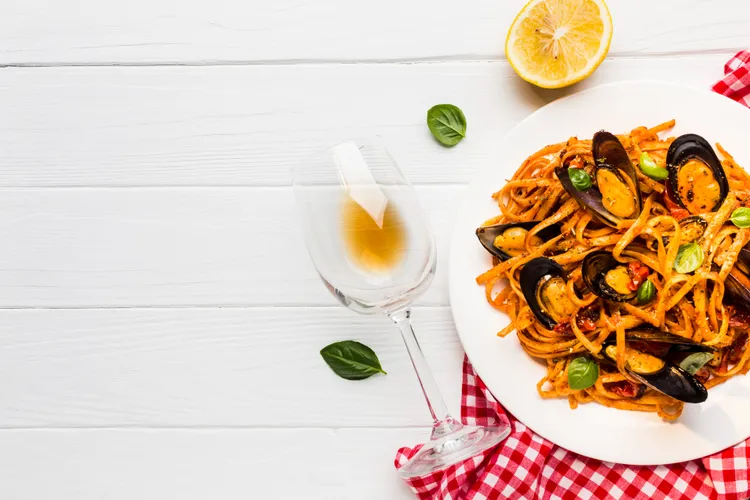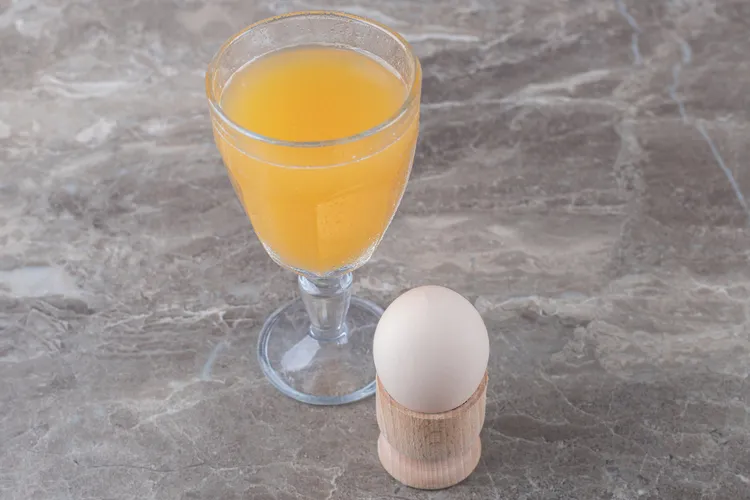Foods That Naturally Support Collagen Production
Collagen is often hailed as the “glue” that holds the body together, providing structure, strength, and elasticity to skin, joints, bones, and connective tissues. As the most abundant protein in the body, collagen plays a critical role in maintaining youthful skin, strong joints, and overall vitality. However, collagen production naturally declines with age, starting as early as our 20s, leading to wrinkles, joint stiffness, and weaker bones. While supplements and skincare products are popular for boosting collagen, the foods you eat can also significantly support your body’s natural collagen synthesis.

What Is Collagen and Why Does It Matter?
Collagen is a structural protein made up of amino acids, primarily glycine, proline, and hydroxyproline. It forms a scaffold that supports skin, tendons, ligaments, cartilage, and bones. There are at least 16 types of collagen, but types I, II, and III are the most common, making up 80–90% of the body’s collagen and supporting skin, joints, and organs.
Collagen production relies on two key factors:
- Amino acids from protein-rich foods, which serve as the building blocks of collagen.
- Cofactors like vitamin C, zinc, and copper, which facilitate collagen synthesis in the body.
As we age, collagen production slows, and external factors like UV exposure, smoking, and poor diet can further deplete levels, leading to signs of aging and reduced joint mobility. By eating foods rich in collagen-supporting nutrients, you can help your body produce and maintain this vital protein naturally.
The Benefits of Supporting Collagen Production
Boosting collagen through diet offers a range of benefits for both health and appearance:
- Youthful Skin: Collagen improves skin elasticity and hydration, reducing wrinkles and dryness. A 2019 study in Nutrients found that dietary collagen peptides improved skin hydration and elasticity in women.
- Joint Health: Collagen supports cartilage integrity, reducing joint pain and stiffness, especially in conditions like osteoarthritis, per a 2016 study in Current Medical Research and Opinion.
- Bone Strength: Collagen provides structure to bones, helping prevent bone loss. A 2018 study in Nutrients linked collagen intake to improved bone density in postmenopausal women.
- Hair and Nail Health: Collagen strengthens hair and nails, reducing brittleness and promoting growth.
- Gut Health: Collagen may support gut lining integrity, potentially reducing symptoms of leaky gut syndrome.
- Muscle Recovery: Collagen contains amino acids that aid muscle repair, especially after exercise.
By focusing on foods that naturally support collagen production, you can harness these benefits without relying solely on supplements.
Key Nutrients for Collagen Production
To produce collagen, your body needs specific nutrients. Here’s a breakdown of the essential players:
- Protein (Amino Acids): Glycine, proline, and hydroxyproline are the primary amino acids in collagen. These are found in protein-rich foods.
- Vitamin C: Essential for collagen synthesis, vitamin C acts as a cofactor in converting proline to hydroxyproline, stabilizing collagen’s structure.
- Zinc: This mineral supports collagen formation and tissue repair.
- Copper: Copper activates enzymes like lysyl oxidase, which cross-links collagen fibers for strength.
- Vitamin A: Supports skin cell turnover and collagen production.
- Antioxidants: Polyphenols and other antioxidants protect existing collagen from damage caused by free radicals.
With these nutrients in mind, let’s explore the best foods to include in your diet to naturally boost collagen production.
Top Foods That Support Collagen Production
The following foods are rich in collagen-building amino acids, cofactors, or antioxidants, making them ideal for supporting your body’s collagen synthesis.
Since collagen is a protein, consuming high-quality protein sources provides the amino acids needed for its production.
- Bone Broth: Made by simmering animal bones and connective tissues, bone broth is rich in collagen, gelatin, and amino acids like glycine and proline. A 2020 study in Nutrients noted that bone broth may improve skin elasticity and joint health. Sip it as a warm drink or use it as a base for soups and stews.
- Chicken: Chicken, especially skin-on cuts and connective tissues, is high in collagen and glycine. Opt for roasted or grilled chicken thighs for a nutrient-dense option.
- Fish and Shellfish: Fish like salmon, mackerel, and sardines provide collagen, particularly in their skin and scales. Shellfish like shrimp and oysters are also rich in zinc and copper, key collagen cofactors.
- Eggs: Egg whites are a great source of proline, while yolks provide zinc and healthy fats that support collagen synthesis.
- Beef: Lean cuts of beef and organ meats like liver are rich in glycine and zinc, supporting collagen production and tissue repair.
- Legumes: For plant-based diets, beans, lentils, and chickpeas offer protein and zinc, though they’re lower in glycine compared to animal sources.
Pro Tip: Rotate protein sources to ensure a variety of amino acids and micronutrients for optimal collagen synthesis.
Vitamin C is non-negotiable for collagen production, as it supports the enzymatic processes that build collagen fibers.
- Citrus Fruits: Oranges, grapefruits, lemons, and limes are packed with vitamin C. One medium orange provides about 70 mg of vitamin C, nearly meeting the daily recommended intake.
- Berries: Strawberries, blueberries, and blackberries are rich in vitamin C and antioxidants, protecting collagen from oxidative stress. A cup of strawberries offers over 85 mg of vitamin C.
- Bell Peppers: Red and yellow bell peppers are vitamin C powerhouses, with one medium pepper providing up to 190 mg. Add them to salads or stir-fries.
- Kiwi: This small fruit packs a punch, with one kiwi delivering about 71 mg of vitamin C, plus fiber and antioxidants.
- Broccoli: A cup of cooked broccoli provides 101 mg of vitamin C, along with fiber and anti-inflammatory compounds.
- Guava: One guava fruit contains over 200 mg of vitamin C, making it one of the richest sources available.
Pro Tip: Pair vitamin C-rich foods with protein sources (e.g., a spinach salad with grilled chicken) to maximize collagen synthesis.
Zinc supports collagen formation and tissue repair, making it a crucial mineral for skin and joint health.
- Oysters: Oysters are one of the richest sources of zinc, with a single oyster providing about 5.5 mg, nearly half the daily recommended intake.
- Pumpkin Seeds: A handful of pumpkin seeds offers about 2.2 mg of zinc, plus healthy fats and magnesium. Sprinkle them on yogurt or salads.
- Nuts: Cashews, almonds, and peanuts provide moderate amounts of zinc. A 1-ounce serving of cashews contains about 1.6 mg.
- Whole Grains: Quinoa, oats, and brown rice offer zinc, though plant-based sources are less bioavailable than animal sources due to phytates.
- Dark Chocolate: A small square of 70%+ dark chocolate provides about 0.9 mg of zinc, plus antioxidants.
Pro Tip: Soak or sprout grains and legumes to reduce phytates and improve zinc absorption.
- Copper-Rich Foods
Copper activates enzymes that strengthen collagen fibers, supporting skin and joint health.
- Liver: Beef or chicken liver is one of the best sources of copper, with a 3-ounce serving providing about 12 mg, far exceeding daily needs.
- Shellfish: Crab, lobster, and mussels are excellent copper sources, with a 3-ounce serving of crab offering about 1 mg.
- Sesame Seeds: A tablespoon of sesame seeds provides about 0.4 mg of copper, perfect for sprinkling on dishes.
- Cocoa Powder: Unsweetened cocoa powder adds copper (about 0.4 mg per tablespoon) and antioxidants to smoothies or baked goods.
- Leafy Greens: Spinach and kale provide small amounts of copper, along with other collagen-supporting nutrients like vitamin A.
Pro Tip: Copper is needed in trace amounts, so moderation is key to avoid toxicity.
- Antioxidant-Rich Foods
Antioxidants protect collagen from damage caused by free radicals, UV rays, and pollution.
- Blueberries: Packed with anthocyanins, blueberries protect collagen and reduce inflammation. A cup provides antioxidants and vitamin C.
- Green Tea: Rich in catechins, green tea protects collagen from breakdown and supports skin health. Aim for 1–2 cups daily.
- Tomatoes: Lycopene in tomatoes protects skin from UV damage, preserving collagen. Cooking tomatoes enhances lycopene bioavailability.
- Pomegranates: Pomegranate seeds and juice are high in polyphenols, which support collagen integrity and reduce oxidative stress.
- Nuts and Seeds: Walnuts, flaxseeds, and chia seeds provide omega-3s and antioxidants, supporting skin health and collagen protection.
Pro Tip: Include a variety of colorful fruits and vegetables to maximize antioxidant intake.
- Sulfur-Rich Foods
Sulfur supports the formation of collagen cross-links, enhancing its strength and stability.
- Garlic: Garlic is rich in sulfur compounds like allicin, which support collagen production and have anti-inflammatory benefits.
- Onions: Onions provide sulfur and antioxidants, making them a great addition to soups or salads.
- Cruciferous Vegetables: Broccoli, cauliflower, and Brussels sprouts contain sulfur compounds that aid collagen synthesis.
- Egg Yolks: Rich in sulfur and choline, egg yolks support collagen production and overall tissue health.
Pro Tip: Lightly cook sulfur-rich vegetables to preserve their nutrients while improving digestibility.
Sample Collagen-Boosting Meal Plan
Here’s a one-day meal plan packed with foods that support collagen production:
- Breakfast: Greek yogurt with sliced kiwi, blueberries, and a tablespoon of pumpkin seeds.
Why it works: Provides vitamin C, zinc, and protein for collagen synthesis. - Snack: A handful of almonds and a small orange.
Why it works: Combines zinc, healthy fats, and vitamin C. - Lunch: Grilled salmon with a side of steamed broccoli and quinoa, drizzled with olive oil and lemon juice.
Why it works: Rich in collagen, vitamin C, zinc, and omega-3s. - Snack: A cup of bone broth with a sprinkle of fresh parsley.
Why it works: Delivers collagen, amino acids, and anti-inflammatory herbs. - Dinner: Chicken stir-fry with bell peppers, spinach, and garlic over brown rice.
Why it works: Combines protein, vitamin C, sulfur, and copper for comprehensive collagen support. - Dessert: A square of dark chocolate and a handful of pomegranate seeds.
Why it works: Provides copper, zinc, and antioxidants to protect collagen.
Lifestyle Tips to Enhance Collagen Production
In addition to diet, these lifestyle habits can support collagen synthesis:
- Stay Hydrated: Water keeps skin hydrated and supports collagen’s structural integrity. Aim for 8-10 cups daily.
- Limit Sugar and Processed Foods: Excess sugar can cause glycation, which damages collagen fibers. Opt for whole foods instead.
- Protect Against UV Damage: Use sunscreen and wear protective clothing to prevent UV-induced collagen breakdown.
- Get Enough Sleep: Sleep supports tissue repair and collagen production. Aim for 7–9 hours per night.
- Exercise Regularly: Weight-bearing exercises like strength training stimulate collagen production in bones and joints.
Foods to Avoid for Collagen Health
Certain foods and habits can hinder collagen production or damage existing collagen:
- High-Sugar Foods: Sugary snacks and sodas promote glycation, weakening collagen.
- Processed Foods: Trans fats and artificial additives can increase inflammation, harming collagen.
- Excess Alcohol: Alcohol dehydrates the body and depletes vitamin C, impairing collagen synthesis.
- Smoking: Tobacco smoke generates free radicals that break down collagen, accelerating aging.
Special Considerations
- Plant-Based Diets: Vegans can support collagen production with plant-based proteins (legumes, tofu), vitamin C-rich foods, and zinc/copper sources like nuts and seeds. Consider algae-based omega-3 supplements for added support.
- Allergies or Sensitivities: If you’re allergic to shellfish or other collagen-rich foods, focus on alternatives like legumes, nuts, and vitamin C-rich produce.
- Aging: As collagen production declines with age, older adults may need to prioritize nutrient-dense foods and consider consulting a dietitian for personalized advice.
- Supplements: While whole foods are ideal, collagen peptides or gelatin supplements can complement a collagen-boosting diet. Look for high-quality, grass-fed, or marine-based options.
Research supports the role of diet in collagen production. A 2015 study in Journal of Cosmetic Dermatology found that oral collagen peptides, combined with vitamin C, improved skin elasticity and reduced wrinkles. Zinc and copper are critical for activating enzymes like lysyl oxidase, which cross-links collagen fibers, per a 2014 study in Molecular Nutrition & Food Research. Antioxidants, like those in berries and green tea, protect collagen from oxidative damage, as noted in a 2017 study in Oxidative Medicine and Cellular Longevity. By focusing on nutrient-dense foods, you provide your body with the raw materials and cofactors needed for robust collagen synthesis.
Collagen is the cornerstone of healthy skin, strong joints, and resilient bones, and your diet plays a pivotal role in supporting its production. By incorporating foods rich in protein, vitamin C, zinc, copper, and antioxidants, you can naturally boost collagen synthesis and protect existing collagen from damage. From sipping bone broth to savoring a berry-packed smoothie, these foods offer a delicious, sustainable way to nourish your body from the inside out.
Start small by adding one or two collagen-boosting foods to your meals each day. Pair them with a healthy lifestyle—hydration, sleep, and sun protection—to maximize results. With consistency, you’ll not only feel stronger and more vibrant but also glow with the radiance of well-nourished skin and tissues. Here’s to building a stronger, healthier you, one bite at a time!









